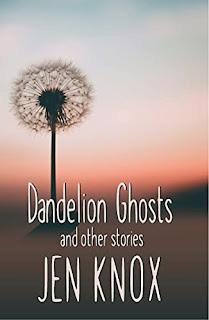Anyway, lately one topic seems to come up often in these interviews that's especially interesting (and elusive): voice. The question that usually precedes this topic is "What's your advice to new writers?"
In Zen in The Art of Writing
But how does this happen? Is finding one's voice similar to finding religion, finding our lost keys or finally getting the punchline of that joke? Is there a moment when everything just clicks and the writer just knows, from some mysterious and complex series of events, that he's ready. Then everything created after this revelation is somehow better, really ours? Or maybe it's like finding one's voice more like a journey that we must take and once we've overcome certain obstacles and pushed through certain blocks, we've earned it.
Somehow, I think that finding my own writing voice came not from writing but from living through certain things that I knew I had to confront and question circumstances that perplexed me even though I lived through them, possibly even perservered. For me, voice is really something to be found on the page in every piece of writing, to be found again and again, whether through metaphor in fiction or analysis philisophical questioning in nonfiction.
In an interview from The New York Times Magazine, December 5, 1976 Joan Didion
Because I have this sort of philosophy abou the writing voice, I think I agree with those writers who say go find your own voice. Because like it or not, MFA or no, hot shot literary friends or not, a writer will either find her voice or she won't. When I write I do so to explore myself and the those things that I find particularly perplexing about the world around me, be this in fiction or poetry or any other genre; I don't write what I know--if I wrote about what I knew, I wouldn't write nearly as much!--but what I want to know, and the rest seems to take care of itself. Voice, in this sense, is the consequence of genuine, unabashed curiosity. This can never be cliche.
.....


Now I wonder if I've found my voice or not...
ReplyDelete